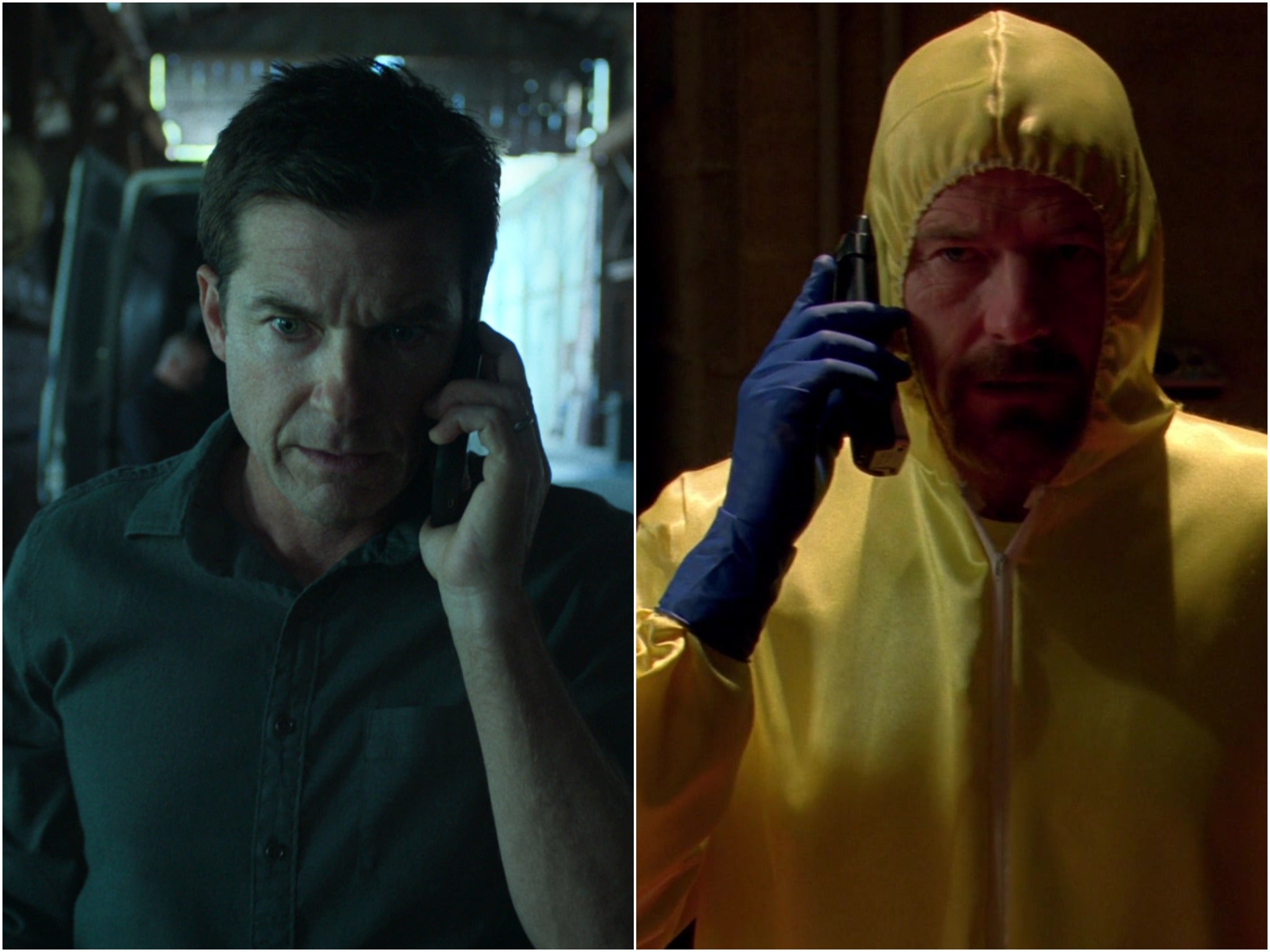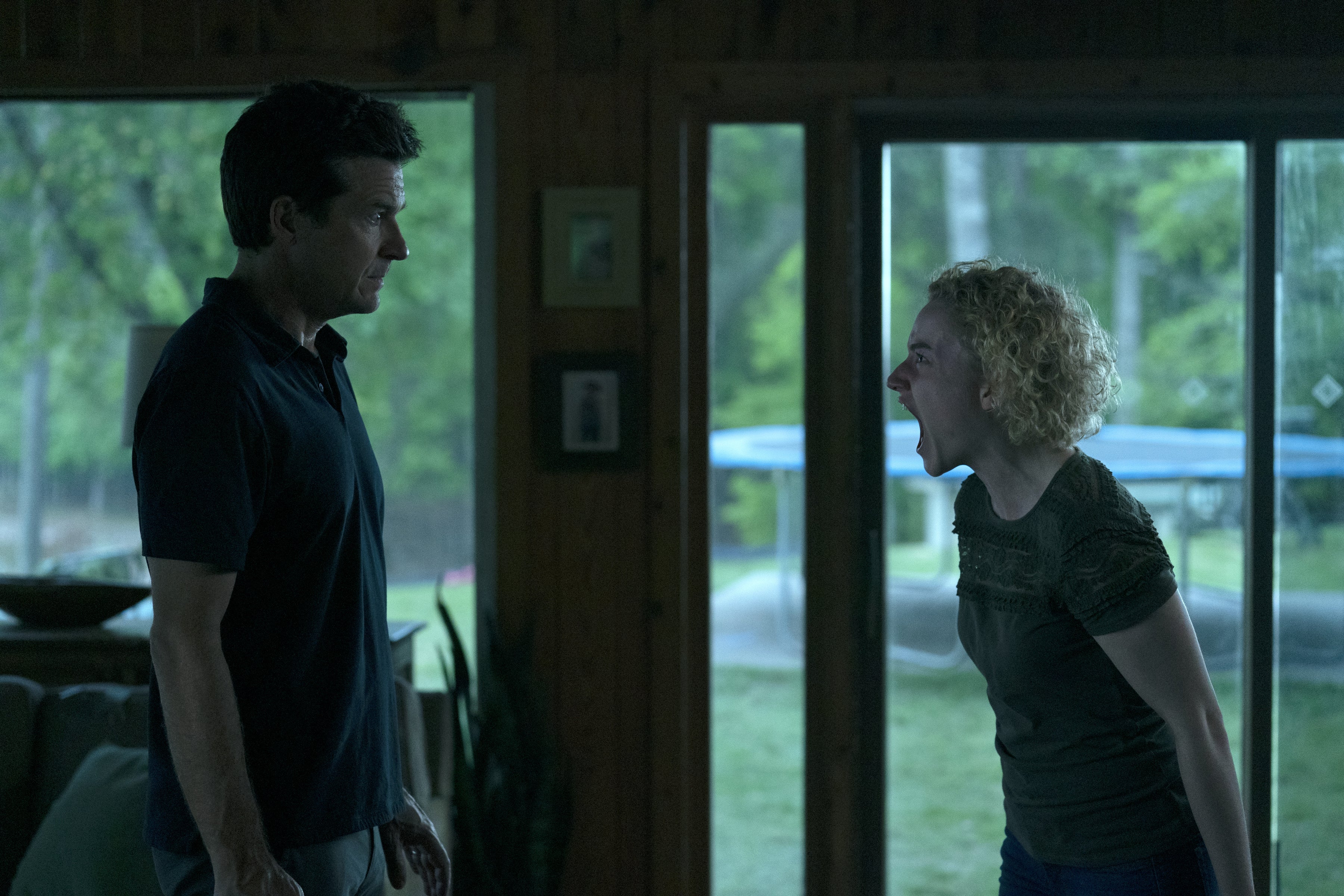How Ozark avoided the Netflix scrapheap and became better than Breaking Bad
The Jason Bateman thriller’s reputation has steadily but stealthily grown – a rarity at a time when a new series only has to grab a viewer’s attention instantly and not let go, writes Ed Cumming


Your support helps us to tell the story
From reproductive rights to climate change to Big Tech, The Independent is on the ground when the story is developing. Whether it's investigating the financials of Elon Musk's pro-Trump PAC or producing our latest documentary, 'The A Word', which shines a light on the American women fighting for reproductive rights, we know how important it is to parse out the facts from the messaging.
At such a critical moment in US history, we need reporters on the ground. Your donation allows us to keep sending journalists to speak to both sides of the story.
The Independent is trusted by Americans across the entire political spectrum. And unlike many other quality news outlets, we choose not to lock Americans out of our reporting and analysis with paywalls. We believe quality journalism should be available to everyone, paid for by those who can afford it.
Your support makes all the difference.Netflix’s crime drama Ozark was not the most promising proposition on TV when it began, back in the innocent prelapsarian days of 2017. It seemed to draw too obviously on other dramas. The characters looked suspiciously like people we had seen before. Here was a white upper-middle-class family on the run, uprooted from the affluent Chicago suburbs and dumped in a poor little town in Missouri. There, financial adviser Marty Byrde (Jason Bateman) and his wife Wendy (Laura Linney) had to somehow find a way to launder $500m for a criminal cartel.
The word “Ozark” had a certain obscure mystery, at least to non-American viewers. Ozark sounds like dark: spiky z’s and k’s. But while the specifics differed from other series, the recipe felt familiar, if not outright derivative. There was a dash of True Detective, a spot of Bloodline, and a hefty dollop of Breaking Bad in the “Dad does crime” concept. “Jason Bateman breaks mediocre,” said Rolling Stone, sniffily writing off Ozark as “Peak TV’s greatest hits played by a proficient covers band”. Others agreed. Ozark was a lazy attempt to ride a horse that had bolted. Try harder, Netflix! Earn our prized attention span! Our eyeballs are cosseted little Fauntleroys these days, picky and capricious. Many series are cancelled after a season or two. There was little reason to think Ozark wouldn’t join them on the “nice try” scrapheap.
Five years later, the Byrdes are still at it. Ozark is back, with an extended fourth – and final – season, split into two seven-episode sections. Its reputation has steadily but stealthily grown – a rarity at a time when a new series only has to grab a viewer’s attention instantly and not let go. The first episode starts with a flurry of activity: the Byrdes are now prosperous casino owners, but somehow their list of antagonists is longer than ever. When they air later this year, the final instalments will comprise one of the most anticipated finales of 2022. We don’t know whether the finale will see them drive off happily into the sunset, but it seems unlikely in a series that basically sticks bad people up a tree and throws rocks at them.
Ozark’s unexpected triumph is partly down to those old-fashioned qualities of writing, acting and directing. Classic. Ozark’s violent twists and dark mood are leavened with intelligent humour. In the face of all this misery, what is there to do but wisecrack? It has a distinctive gloomy aesthetic all of its own, which makes oppressive use of the landscape, all looming forests and brackish water, lit in milky sunshine.
Julia Garner has been a marvel as the tricksy Ruth Langmore since the beginning. She has rightly been showered with awards (including the Emmy for Best Supporting Actress in a Drama Series). In Linney’s hands, Wendy has evolved from something like a stock wife into an unpredictable, avaricious, power-thirsty anti-hero all of her own. Although Jason Bateman was best known for a comic performance as the put-upon professional holding the erratic Bluth family together in Arrested Development, he had shown in Juno that he was a dab hand at creepy nice guy. His shifty smile told you that for all his outward respectability, in another world he could do terrible things. In Ozark, he has been able to show just how terrible, a sleazy, tricksy anti-hero.
But those things aren’t enough on their own to build the kind of momentum Ozark enjoys. There is a harder-to-pin-down quality, too, something in the atmosphere that isn’t entirely its own doing. The only other programme enjoying the same trajectory is Better Call Saul, coincidentally also about to come to an end. Like Ozark, Better Call Saul has become richer, more complex and more confident over its six series. One show was dismissed as a Breaking Bad rip-off, the other was a Breaking Bad prequel, and it’s possible both have superseded the original. Especially if you think Breaking Bad might have been a teensy bit overrated. Of all the great dramas since The Sopranos, it is only Mad Men that portrays an optimistic view of America, and that was set in the postwar glow of the Fifties and Sixties.

It certainly says something that so many of the country’s great dramas are about drugs. The Wire had crack and heroin, Breaking Bad did meth, Better Call Saul has meth, too. Ozark plays out against the legacy of the opioid epidemic, with its lingering boost for the heroin market. In this world, everyone can be an enemy: not just the gangsters and the cops and the bent politicians, but your family, your customers, your bosses, members of the public who are even more downtrodden than you. Baltimore, Albuquerque, the Lake of the Ozarks: these are the left-behind corners of America, far away from technology gold-rush or clean-living finance bros. Drugs turn the individual against themselves, and the drug trade turns Americans against each other. In a subtly different life, Marty and Jimmy, a financial adviser and a lawyer, would never have operated in the shadows. Yet here they are, wallowing in the ruins. It’s not just these individuals that have broken, but the system has, too.
EM Forster held that rounded characters were ones who could plausibly change their mind. After Marty’s initial Faustian pact, the Byrdes’ descent into criminality has been a believable consequence of the world they find themselves in. Ozark uses its small, back-of-beyond canvas to paint a picture of a country falling in on itself, where morals are optional. It is a tale as old as America, but television has not always had such a pessimistic outlook. The familiar set-up and characters have grown to epic proportions. Not bad for a covers band.



Join our commenting forum
Join thought-provoking conversations, follow other Independent readers and see their replies
Comments